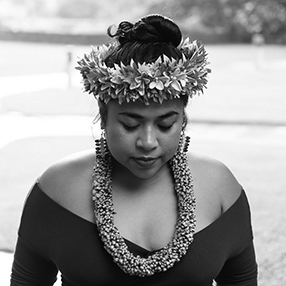I Remember
Why is a 16-year-old child dead?
Shot by a
public servant
sworn to protect?
“Because he was a criminal.”
Because he was a young Micronesian,
Chuukese boy caught in the liminal.
Misplaced, displaced identity:
never Micronesian enough,
never Hawaiian enough.
Never American enough.
Never colonizer-labeled enough.
“One less cockroach, prove me wrong”
People shown a lens
spectating our kids as the problem.
Incognizant of the systemic,
socioeconomic barriers that bar them.
The system that says
stealing
justifies
a brown child’s death,
is the very system
that
does
not
hold
the colonizer
accountable for land theft.
The same system
where we must constantly reiterate,
articulate
generational trauma
that’s race based
is the same system stripping us
from landscapes.
Separation of ancestral spaces where
community can constellate.
Recenter
this
boy’s
diasporic identity.
Dis
place
his self-hate.
Teach him,
that as a Micronesian,
Chuukese,
migrant
identity
his existence
as a descendant of a navigating society
is the extensive culmination of a legacy
of people crossing oceans to build relationships,
to be adaptable,
resilient.
As a Micronesian, Pohnpeian, migrant woman,
I choose audacity:
abolish, dismantle, transform.
Call forth the very relationships our ancestors forged.
Cross this ocean of liberation in community.
Rebirth the ocean nation our ancestors dreamed.
So that we may never worry
about our future ancestors
and the legacies we’re going to leave
for the young,
for the misled,
for Iremamber Sykap—
see the thing that I need people to remember is:
We can teach the young misled.
But we can’t teach the young dead.
We
can teach
the young
misled
But we can’t teach
the young dead.
Copyright © 2024 by Carol Ann Carl. Originally published in Poem-a-Day on May 29, 2024, by the Academy of American Poets.
“On April 5, 2021, a Honolulu police officer fired ten shots into the rear window of a car driven by Iremamber Sykap, killing the sixteen-year-old child. The poem has been adapted from its original spoken word form for this publication. It was written in response to a hateful social media comment. The poem is a call for accountability to public servants, community members, and allies and serves as a reminder that we must address ignorance and cognitive dissonance at their roots. Our children’s lives depend on it.”
—Carol Ann Carl

